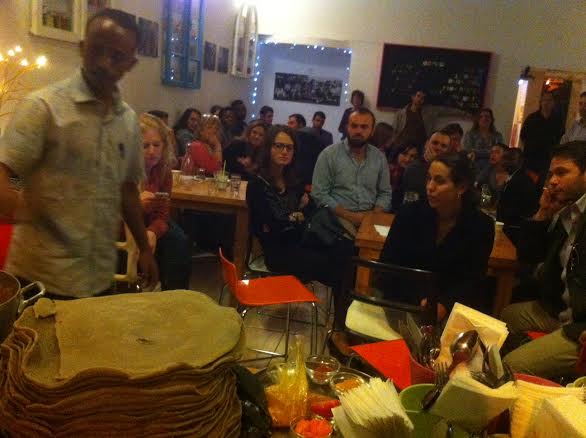
If you live in south Tel Aviv in the Shapiro neighborhood by the central bus station you might come in contact with an African migrant or refugee. Unless you live side by side with them, it’s doubtful that you’ll get a chance to talk to one of the tens of thousands of men, and sometimes women, who fled or migrated to Israel from countries like Eritrea and Sudan, in hope of a better life. But eating with them? That’s a different story.
On a Monday night in Jaffa a few months ago, TV was passé: Israelis and African migrants and refugees opened their ears and hearts to one another at a local restaurant which shut its kitchen down to the public and opened it up to let the Africans do the cooking.
Sitting at my table was Dawit Damuz, a 30-something migrant from Senafe, Eritrea, a city close to the Ethiopian border. He has been in Israel since 2004. He told us that his life was made hell by the army who tortured him and other men that did not conform to army sanctions. There were strange practices called “helicoptering” which tortured men by hanging them from their legs. Men in the army simply go missing, there are extrajudicial killings, and incommunicado detentions.
Only four official religions can be practiced in the country, Damuz explained, and anyone who is meeting in groups larger than five people at a time are punished.
Now in Israel Damuz has become a local leader among the asylum seekers in Tel Aviv who are facing deportation by the authorities. While they claim refugee rights, some Israelis and their politicians say it is the burden of countries through which they passed to absorb the migrants.
If there is any doubt about the problems the Africans may face, according to Human Rights Watch, “Torture, arbitrary detention, and severe restrictions on freedom of expression, association, and religious freedom remain routine in Eritrea.”
But even if for small moments, politics could be brushed aside at the second Cook, Eat & Meet in Jaffa. Every day Israelis were invited to meet some of the faces of the African refugees who share their city.
Amnesty International organizes such events to show locals in some cities the plight of asylum seekers and refugees. Two new immigrants to Israel, one from the UK and one from America organized this event in Jaffa.
Earlier on the Israelis in the group, about 30 or 40 people, were chopping vegetables and sipping on a beer, tea or a glass of water. We sat around tables of about eight and talked with an asylum seeker.
We drank a Central African Republic warm pudding drink called popoto made with rice and peanut butter. The recipe was shared and as we sipped it seemed like every Israeli with roots elsewhere said it reminded them of a drink from “home”. For me it tasted like the local Arabian sahlab, a thick drink sprinked with peanuts made to warm your insides on cold winter nights in Israel.
And throughout the night African migrants and refugees shared their stories of home, obligatory army service, the lack of freedom of speech –– and food.
A stack of injera bread, with a hint of molasses and a bit sandy to the bite (from the desert?), waited by the service window as three readied pots of simple food, like alicha, with vegetables and lentils released smells not familiar to the Arabian city of Jaffa.
There were journalists, PR professionals, those from the startup community, and activists eager to “taste” the life and times of those less lucky in Israel. It was a time for people to get personal as we sat around round tables letting the Africans explain their life and times before Israel.
That night my home city of Jaffa, sometimes troubled, sometimes violent, but always interesting, seemed to be transformed. Whether it was the good will, and positive energy inside the Tarnagol Restaurant (that hosted this encounter) which transferred this vibe I cannot say.
All I can say is that the event brought some new life and hope to everyone there. We learned a few recipes that connected Israel directly to Africa, even if only by way of an imaginary border.
For upcoming events like this one, email [email protected]

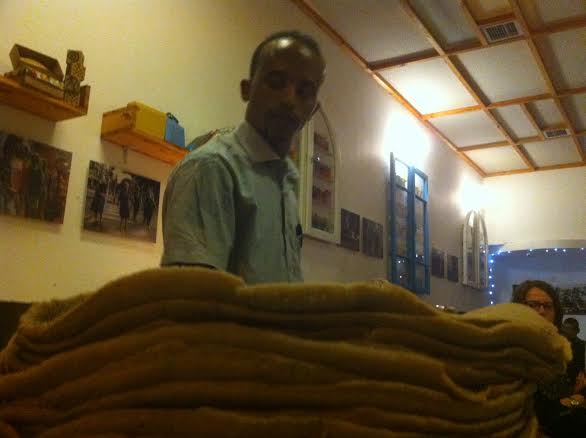
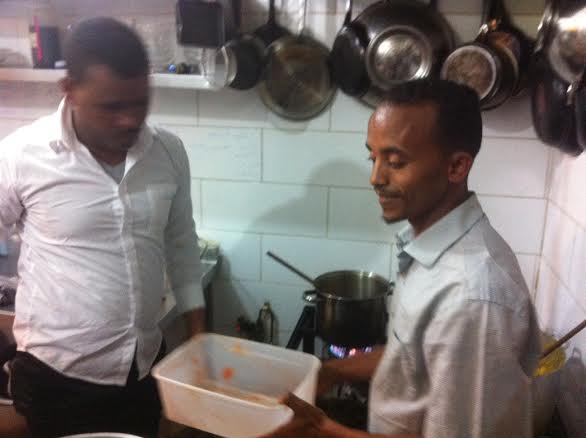
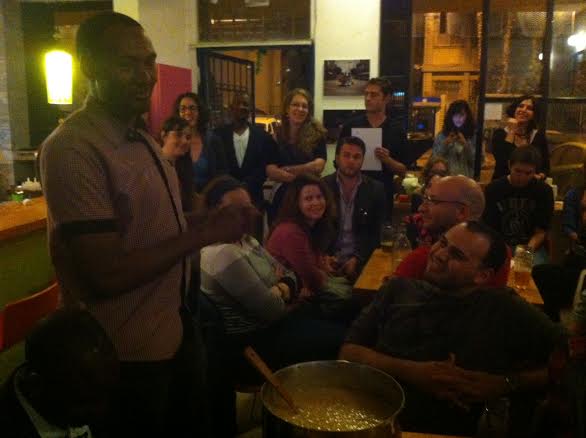


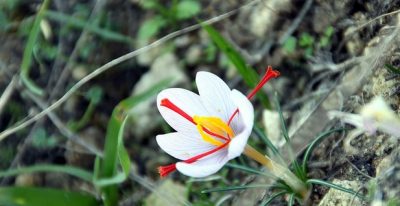
Help us fight refugees` detention in Israel! please visit ASSAF website and support our cause
http://assaf.org.il/en/